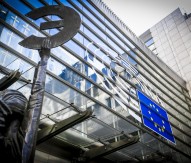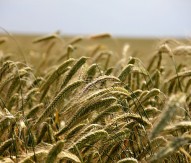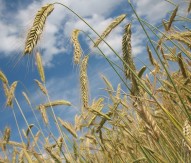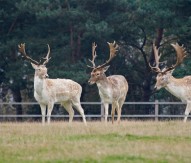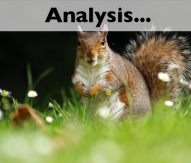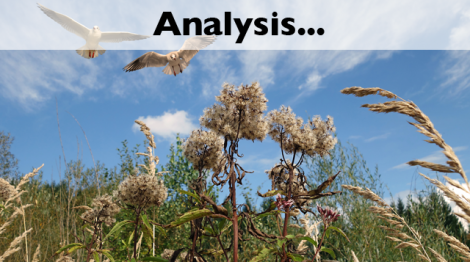
Analysis… Green family circle
At Green Week 2015 in Brussels, Portal spoke to Dirk Holemans, co-ordinator of the social and ecological change think tank Oikos, about the growing EU circular economy.
Human activity is having a particularly negative effect on the environment, and maintaining a balance between the consumption of natural resources whilst encouraging economic growth is difficult. According to Dirk Holemans, co-ordinator of Oikos, a think tank based in Brussels focusing on social and ecological change, radical new thinking is needed to provide a solution.
Following a policy debate on the future relationship between Nature and human activities at Green Week 2015 in Brussels in June, Portal spoke to Holemans and asked the Flemish former MP how to safeguard biodiversity whilst also realising economic growth in Europe. He began by outlining the importance of connecting these concepts: “Until now we have seen Nature conservation and economic development as two separate worlds where we put the economy first and then we can see whether there is still some room to protect Nature.
“The message of ‘planetary boundaries’ makes it very clear that we have to leave so-called ‘frontier lands’: external places that we consider warehouses for resources. For example, in the Amazon rainforest, we are cutting down forests because we think they are empty and we need them for resources. In reality, these forests are full of life and people. If we really acknowledge the message of planetary boundaries, we have to radically enter the circular economy, and this will change everything.
“We need to have open minds to radical new concepts such as urban mining. This means we have to reuse the chairs, the walls, and the resources in the building where we sit, and we have to move away from the concept of waste. If we really want to stay in planetary boundaries but also have a vital economy as resources become scarcer, the circular economy is fundamental to having better biodiversity and a lively, future-oriented economy. We have to change the fundamentals of the economic system.
“Efficiency leads to lower prices, and the market is a basic principle of organising how much things cost; if the price is lower, we will use more. Recently, the big oil companies have argued for a carbon tax, and this shows the true reluctance of politicians, who do not dare talk about the carbon tax.”
Holemans added that a more holistic approach towards the environment is needed: “If we move beyond planetary boundaries, it’s also bad for the economy. Every day of the week, we have to think about these planetary boundaries and about biosphere integrity. My message is: if you discuss Nature, you should discuss economic politics in the first place. This politics of the economy is also about democracy: are people really having a say on what happens to the resources on their land or not?”
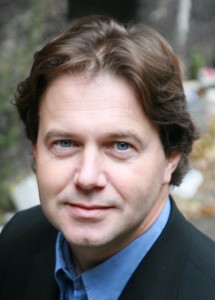
Dirk Holemans
According to the European Commission, a circular economy aims to maintain the value of the materials and energy used in products in the value chain for the optimal duration, thus minimising waste and resource use. Preventing losses of value from materials flows creates economic opportunities and competitive advantages on a sustainable basis.
In May, the European Commission announced it had opened a public consultation to collect views to help develop a new approach on the circular economy. According to the EU institution, the upcoming package will take a coherent approach that fully reflects interactions and interdependence along the value chain. It will also comprise a revised legislative proposal on waste and a communication setting out an action plan on the circular economy. Portal asked Holemans for his thoughts on the EU institution’s move to implement a replacement package.
“I’m very disappointed,” he said, “because we are losing valuable time and there were some good concepts on the table. We have very important climate change negotiations in Paris in December; we cannot say that we will develop a new package and, within a few years, develop new ideas about a circular economy – we have to implement them today.
“The same thinking can be applied for directives on Nature conservation. If you look at the report that was issued by the European Environmental Agency, we are doing very badly. One-third of our protected habitats are deteriorating; that’s a clear message that we have to change policy and make directives even stronger. This is important: we have to protect more Nature. Yet, at the same time, this cannot serve as an alibi for doing what we want with the rest of the environment.”
Circular sufficiency
Holemans then moved to discuss two further important aspects to realising a circular economy – connecting efficiency with sufficiency and sharing things, two concepts that are being led by the citizen.
“The circular economy is also based on another premise which I call the ‘economy of sufficiency’. If you always want to be more efficient and your car is becoming more efficient, yet you drive more kilometres, or if we insulate our houses and increase efficiency, but then with the money we save we fly off on holiday, the burden on the planet gets even bigger.
“We have to introduce the concept of sufficiency, which is now beginning to happen. This ‘sharing economy’ was not introduced by policy makers or regulations; it was introduced by citizens being fed up with always having to buy more products only to produce more waste. Their response was: it can’t go on like this, and you could have a better life with less materialism if you share things. And it works: if you look at cities in Europe, car sharing schemes are growing very fast and the impact is enormous – one shared car can replace 11 private ones.
“In certain cities, we have so-called ‘libraries of equipment’. This is also a very important route to having a vital economy – it’s more of a service economy where, for example, you don’t buy a car but instead use the mobility services that are offered, or, rather than buying garden equipment when you need it, you can use a service to borrow your required implements. These are two very important building blocks for a new economy, allowing a good life whilst staying inside planetary boundaries.
“The sufficiency race is in our so-called ‘sustainable box’. Efficiency without sufficiency is in our ‘unsustainable box’: people will just drive consumption up to a higher level.”
Connected with the environment
Holemans then provided his thoughts on the extent to which citizens are reacting to the need to reduce their impact on the environment, and the multitude of influences that are affecting society.
“We can observe two currents in the European countries,” he said. “We have a dominant current, the one we hear every day through the media, in movies and on television programmes. It’s about economic growth and buying more products, and it’s full of advertising.
“Yet there is also a second current, a smaller but growing one where citizens, awoken by the financial crisis, have realised that whilst they have worked hard and saved money, within five years something could happen with the euro or another oil crisis could come, and as such the future isn’t guaranteed and we have to take it into our own hands.
“These people aren’t waiting anymore for the big narrative or big ideology but instead, in their neighbourhood and city, are going to set up collective practices and develop so-called ‘new circles of certainty’. There’s a
lot of uncertainty in the world, and this is building a new environment.
If you are connecting together and using a car sharing scheme or sharing equipment, you are developing resilience.
“If you are growing your own food in a city, you are becoming more resilient. This is a so-called ‘small counter current’, building local resilience. It’s a growing movement and is very important.”
Innovation
With citizens helping to provide a lead, Holemans commented that the European Commission should direct greater funding towards new innovations rather than continuing to invest in current knowledge and developments.
“If we want to do more on biodiversity, we have to look at all the different domains, especially innovation and the economy. The Commission has to give more money to alternative concepts – real radical new ways of production. To give one example in the food domain, there is a lot of money going into biotechnology, creating genetically modified crops. Yet there is little funding going to the promising ecological development called agro-ecology, which focuses on integrating biodiversity protection and good agricultural production. This hardly gets any money.
“We are spending a lot of money refurbishing old innovation, and we should put our money into new innovations that really want to connect economy, production, and Nature conservation.”
Economic impact
Holemans then told Portal that there needs to be a new critical view on economic growth and posed the question of whether actual growth is leading to a better quality of life: “Economic growth, as we know it, is measured by the products we use, yet if we look at the data, economic growth always goes together with using more energy and more resources – if we include the environmental impact of the production that moved to the East. Whilst we are getting more efficient and now produce cars that use less energy than 20 years ago, as we are producing more cars, our overall impact on the environment is still growing. It is not because we are buying a lot of stuff from China; we are not responsible for the environmental impact of that production.
“We really have to look into how much and what kind of growth we need. Do we need more cars on the road or more bikes? Do people need more time to care for other citizens, or do they have to work harder for more buying power? These fundamental questions should be the basis for our actual debate on the future of the economy.
“There is no dogma that says fulfilling your needs can only take place with buying power in the marketplace. If we share things and take care of other people, we can have a good life, even without this magic economic growth. If you consider other indicators, for instance the indicator of sustainable economic welfare, they show that a lot of Western countries saw GDP growth increase during the 1980s and 1990s, but the indicators for economic welfare went down. So we have to conclude: do we really have a better life?”
New thermometer
Concluding his interview with Portal, Holemans re-emphasised the necessity of radically rethinking the relationship between the economy and the environment, as well as the impact it is having on our lives.
“We are using the wrong thermometer. We only have one, and when GDP goes down we think we have a problem. We have forgotten that when it sometimes goes up, there are more traffic accidents or more pollution. We need a new thermometer.
“Yet, if we realise this is the wrong thermometer and install a different one, there’ll be another debate. So it’s very important for these developments to have other indicators of the wellbeing of countries and our planet.”
It is clear that the EU needs to make a major shift in its approach to economics if the continent is to maintain a vital economy without destroying the environment. With biodiversity still under threat, there is growing recognition of the action needed by citizens, industry and policy makers alike across Europe, though the speed at which actions are taken will determine the results as we seek to live within our planetary boundaries.
Investing and realising the circular economy, encouraging sufficiency and funding radically new innovations are the keys to unlocking the door of your new electric car, which probably also happens to be your neighbour’s, who is relaxing on your garden bench.
Dirk Holemans
This article first appeared in the seventh edition of Horizon 2020 Projects: Portal, which is now available here.
